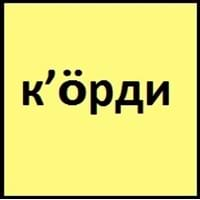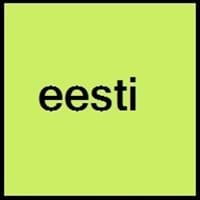Kurdish vs Estonian
Countries
Iraq, Kurdistan
Estonia, European Union
National Language
Azerbaijan, Georgia, Iran, Iraq, Syria, Turkey
Estonia, Gambia
Second Language
Not spoken in any of the countries
Not spoken in any of the countries
Speaking Continents
Middle East
Europe
Minority Language
Not spoken in any of the countries
Denmark, Russia, Sweden
Regulated By
Not Available
Institute of the Estonian Language
Interesting Facts
- The vocabulary in Kurdish is of Iranian origin.
- In the middle East, Kurdish is the fourth largest ethnic group.
- Estonian language is considered to be powerful symbol of Estonian identity and culture.
- Estonian language has adopted many words with Finnish language.
Similar To
Farsi Language
Finnish
Derived From
Not Available
Not Available
Alphabets in
Kurdish-Alphabets.jpg#200
Estonian-Alphabets.jpg#200
Scripts
Arabic, Cyrillic, Latin
Latin
Writing Direction
Right-To-Left, Horizontal
Left-To-Right, Horizontal
How Are You?
Tu çawa yî?
kuidas sul läheb
Good Night
Şev xweş
Head ööd
Good Evening
Evare baş
Tere õhtust
Good Afternoon
Nee-wa-rowt bash
Tere päevast
Good Morning
Bayanit bash
Tere hommikust
I Love You
Ez te hez dikem
ma armastan sind
Excuse Me
Bê zehmet
Vabandage
Dialect 1
Northern Kurdish
Keskmurre
Where They Speak
northern Iraq, northern Syria, northwest Iran, southeast Turkey
Gabon, Northeastern coast of Estonia
How Many People Speak
Not Available
Dialect 2
Central Kurdish
Tartu
Where They Speak
Iraq, Kurdistan Province of western Iran
Georgia, South Estonia
How Many People Speak
Not Available
Dialect 3
Southern Kurdish
Idamurre
Where They Speak
Eastern Iraq
France, Northwestern shore of Lake Peipsi.
How Many People Speak
Not Available
Speaking Population
Not Available
Native Name
Kurdí / کوردی / к’öрди
eesti keel
Alternative Names
Not Available
Eesti keel
French Name
kurde
estonien
German Name
Kurdisch
Estnisch
Pronunciation
Not Available
Not Available
Ethnicity
Kurds
Estonians
Origin
16th century CE
13th century
Language Family
Indo-European Family
Uralic Family
Subgroup
Indo-Iranian
Finno-Ugric
Branch
Not Available
Finnic
Early Forms
Not Available
No early forms
Standard Forms
Kurdish
Estonian
Signed Forms
Not Available
Estonian Sign Language
Scope
Macrolanguage
Macrolanguage
ISO 639 6
Not Available
Not Available
Glottocode
kurd1259
esto1258
Linguasphere
58-AAA-a
No data available
Language Type
Living
Living
Language Linguistic Typology
Subject-Object-Verb
Subject-Verb-Object
Language Morphological Typology
Not Available
Agglutinative
Kurdish and Estonian Language History
Comparison of Kurdish vs Estonian language history gives us differences between origin of Kurdish and Estonian language. History of Kurdish language states that this language originated in 16th century CE whereas history of Estonian language states that this language originated in 13th century. Family of the language also forms a part of history of that language. More on language families of these languages can be found out on Kurdish and Estonian Language History.
Kurdish and Estonian Greetings
People around the world use different languages to interact with each other. Even if we cannot communicate fluently in any language, it will always be beneficial to know about some of the common greetings or phrases from that language. This is where Kurdish and Estonian greetings helps you to understand basic phrases in Kurdish and Estonian language. Kurdish word for "Hello" is Silaw or Estonian word for "Thank You" is aitäh. Find more of such common Kurdish Greetings and Estonian Greetings. These greetings will help you to be more confident when conversing with natives that speak these languages.
Kurdish vs Estonian Difficulty
The Kurdish vs Estonian difficulty level basically depends on the number of Kurdish Alphabets and Estonian Alphabets. Also the number of vowels and consonants in the language plays an important role in deciding the difficulty level of that language. The important points to be considered when we compare Kurdish and Estonian are the origin, speaking countries, language family, different greetings, speaking population of these languages. Want to know in Kurdish and Estonian, which language is harder to learn? Time required to learn Kurdish is 4 weeks while to learn Estonian time required is 44 weeks.





